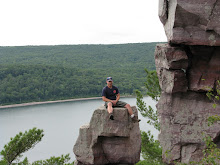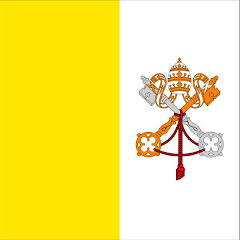In a recent email I mentioned the "silence" concerning the "Safe Environment" children's programs. I wondered if parents are satisfied with how their parishes/schools are handling this program?
Well, 55 dioceses are not satisfied... is it because the parents and some clergy continue to object to the age innapropriate "safe environment" children's programs? We know most of these programs are no more that "sex education".
Can the USCCB really MANDATE these programs and take away the Rights of Parents? Well not according to this:
Pope John Paul II approved a document from the Pontifical Council on the family (1995) entitled "The Truth and Meaning of Human Sexuality" which states:
Sex education, which is a basic right and duty of parents, must always be carried out under their attentive guidance, whether at home or in educational centers chosen and controlled by them. In this regard, the Church reaffirms the law of subsidiarity, which the school is bound to observe when it cooperates in sex education, by entering into the same spirit that animates the parents. [No. 43]
God bless you,
 The Center for Applied Research in the Apostolate has reported that 55 of the 188 dioceses which participated in a USCCB-mandated survey needed to make improvements or risk being out of compliance with the national policy.
The Center for Applied Research in the Apostolate has reported that 55 of the 188 dioceses which participated in a USCCB-mandated survey needed to make improvements or risk being out of compliance with the national policy.This was more than double the number of dioceses who were found lacking in 2009, the Washington Post notes.
"The church cannot afford to relax its standards," the authors of the study warned.
However the report also noted that current instances of sexual abuse of minors continues to decrease, with seven credible allegations against seven priests reported in 2010, according to the 2010 Survey of Allegations and Costs done by the CARA, a USCCB statement says.
At the same time diocesan audits are uncovering weaknesses in audit compliance and finding reports of boundary violations short of abuse, such as inappropriate hugging, the report continued.
The survey by Georgetown University-based CARA collects numbers from the dioceses and coincides with the annual audit of the Charter for the Protection of Children and Young People, conducted by the U.S. bishops' Secretariat of Child and Youth Protection.
All dioceses responded to the CARA survey except the Diocese of Lincoln, Nebraska, which has refused to participate in the compliance audits process since 2004. The U.S. bishops enacted the Charter in 2002 and have conducted national compliance audits annually since 2003.
In addition to the seven cases of abuse of minors in 2010, CARA also found hundreds of accounts of sexual abuse from decades ago that were reported to dioceses only last year. The "number of alleged offenders increased by a fifth, from 286 alleged offenders reported in 2009 to 345 alleged offenders reported in 2010," CARA reported. Almost 60 percent of these offenders had been identified in earlier allegations and three quarters of the offenders are now dead or laicized.
CARA also noted that two thirds of these allegations (66 percent) are old and occurred or began between 1960 and 1984. The most common time period when these allegations reportedly occurred was 1970-1974.
Costs to dioceses and eparchies (Eastern rite dioceses) related to clergy sexual abuse increased between 2009 and 2010 by more than $19 million. "More than half of the payments by dioceses and eparchies in 2010 (57 percent) were for settlements to victims." Costs for settlements paid out by dioceses and eparchies in 2010 were $70,375,228. This was an increase of 28 percent over the previous year's payments for settlements. Legal fees increased by 18 percent.
CARA also noted that "in addition to allegations-related expenditures, at least $20,954,405 was spent by dioceses and eparchies for child protection efforts such as safe environment coordinators, training programs, and background checks."
The audits of Charter compliance, as reported by the Gavin Group, found that "all dioceses/eparchies that participated in the 2010 audit process were found to be compliant with the Charter." At the same time 55 dioceses received management letters expressing concerns about procedures which could result in non-compliance. This number exceeded the number in the 2009 audit, which was 23.
The chief concern which resulted in the majority of these management letters centered on safe environment programs. "Reasons for the management letters include parishes or schools failing to offer classes for children, new pastors or directors of religious education failing to understand diocesan requirements to train students, accepting parent training as parish training, or simply counting absent students as opt-outs. Several dioceses reported receiving verification from pastors that training had taken place, only to have auditors discover it was not offered," the report noted.
In evaluation of compliance with safe environment criteria, the audits found that "over 98 percent of clerics were trained" as were "98 percent of employees and volunteers."
Dioceses that refused to participate in audits included the Diocese of Lincoln, Diocese of Baker, Oregon; the Eparchy of St. Peter the Apostle for Chaldeans; Eparchy of Newton for Melkites; Eparchy of Our Lady of Nareg in New York for Armenian Catholics; Eparchy of St. Josephat of Parma for Ukrainians; Eparchy of Our Lady of Deliverance of Newark for Syriacs. Based on their refusal all were declared non-compliant.
Since the audits began in 2003, the Philadelphia archdiocese has passed every review, including this latest one. Teresa Kettelkamp, the bishops' national child protection officer, said church leaders are looking into how that happened.
"We will figure this out and fix whatever needs to be fixed," Kettelkamp told the Washington Post.
H/T Catholic Parents







.jpg)





No comments:
Post a Comment